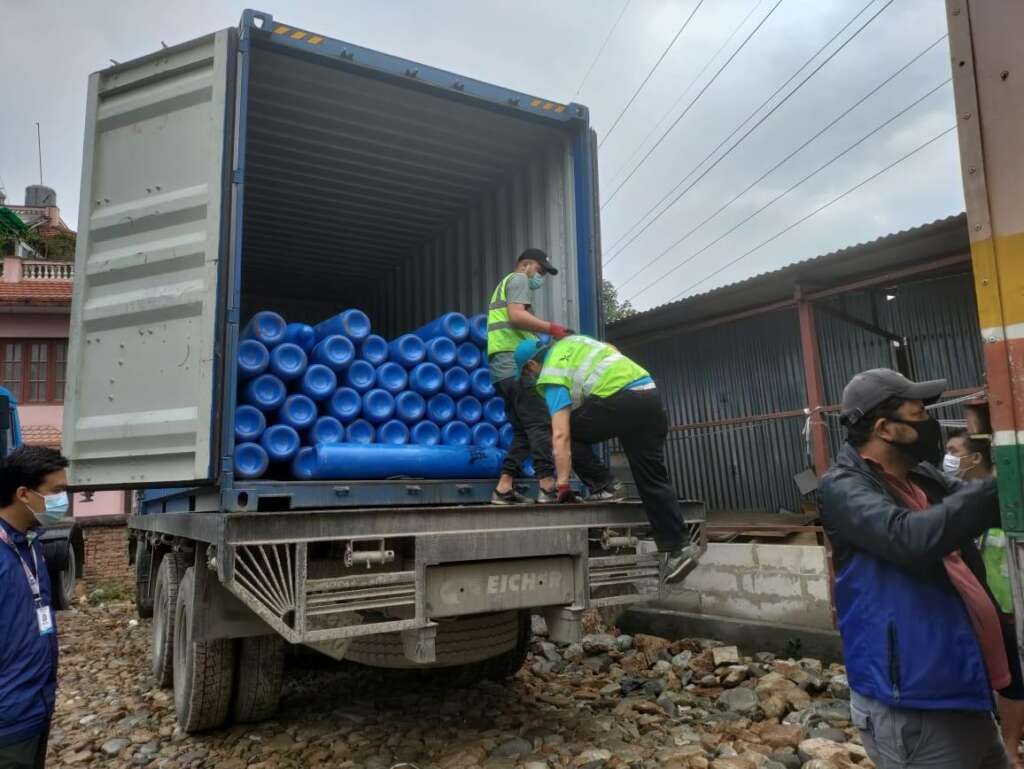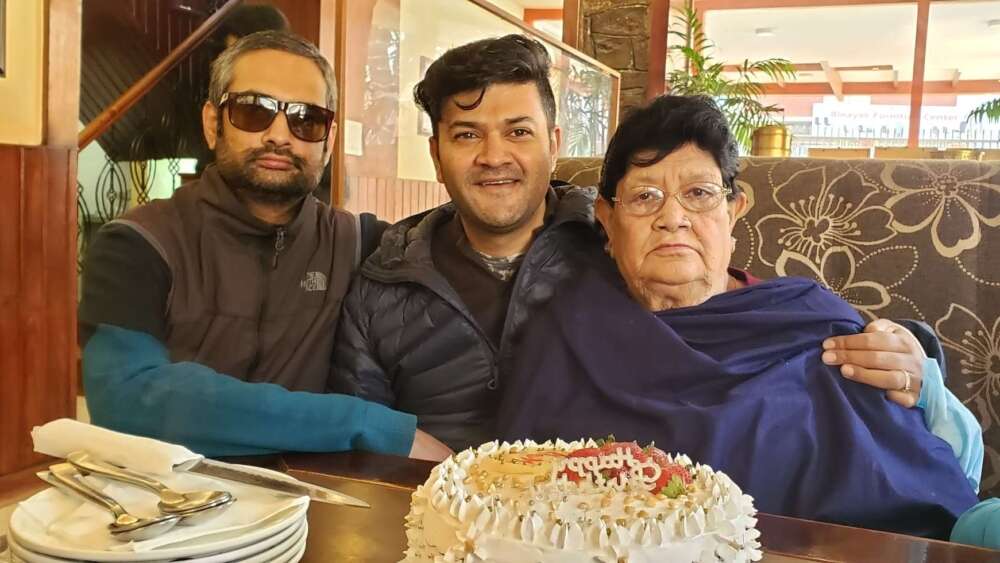COVID in Nepal: I lost my mum and then I got sick
Deepesh’s personal, moving account of the terrible cost of COVID
This month I lost my mother to COVID-19.
Her slide into the abyss began on the evening of May 3, when her oxygen levels started deteriorating. She was quickly moved to intensive care and given high-pressure oxygen. There was no option of putting her on a ventilator as none was available – neither in the hospital, nor in the surrounding areas of Kathmandu.
I felt helplessness, pain, agony and fear surge whenever I went to feed her or change her pull-up. I will never forget the look in her eyes when she would ask when it would all be over. I simply said: ‘Mum, you will be fine. Doctors are attending to you.’
She wanted me to kiss her, but obviously I could not. This I will regret forever. I am thankful to God that despite her oxygen levels being so drastically low, she could still talk. I began to search around Kathmandu for any supplies of Remdesivir – the drug given to critical COVID patients – but this was out of stock in the hospital. It took me a day of calls, using every connection I had to find some. My plea was finally heard by a kind pharmacist from whom I collected the medication at 9pm on May 4.
After the steroids and Remdesivir were administered, her oxygen improved. But at 3am on May 7, while resting in a nearby hotel while my brother was attending to her, I received that dreadful call asking me to come immediately as my mother’s condition was worsening.
I went to the hospital and organised for the last rites to be given virtually by the priest. The fluctuation in her oxygen levels continued and, during the afternoon, my mum started sweating profusely and became restless. After a struggle of around 30 minutes, before our eyes, she took her last breath.
To lose a person to COVID is dreadful, as your friends and family cannot support you. You are alone …
The turmoil did not stop there. As my mother was an Indian citizen, I needed to gather a death certificate from the Indian Embassy and Ministry of Foreign Affairs. Then, due to the backlog of bodies to be transported for burial, my mother would have to wait up to five days – a dreadful feeling, given my mother never wanted to be cremated, but buried.
So, after holding a virtual mass for her, we were forced to arrange her cremation. I was overwhelmed by the number of bodies which kept arriving for cremation.
To lose a person to COVID is dreadful, as your friends and family cannot support you. You are alone – no shoulder to cry on, no hugs to mourn for your loss.

Kathmandu, 21 May 2021 – As Nepal recorded a catastrophic surge in COVID-19 cases, child-focused organisation World Vision supported 1,400 oxygen cylinders, other medical supplies and 25 beds to the Ministry of Health and Population.
Then came the next episode of my COVID story. As I was attending to my mother, I began to feel very weak, and started to experience fever and profuse sweating. With all my attention on my mother, I didn’t take it too seriously. After the cremation, I took a test and tested positive for COVID. I had all the usual symptoms, with a constant fever over many days. My condition deteriorated, and I developed pneumonia in both lungs. I was advised to ask for a hospital bed, but despite the best efforts of my wife, friends and my employer, nothing was available.
I felt certain that I would die. I could not sleep at night.
Whenever I closed my eyes, my mum’s image and all the agony that she went through came flooding back. I felt certain that I would die. I could not sleep at night.
What got me through was that my oxygen saturation was not deteriorating. I was given steroids, which are helping. I still have pneumonia but I am recovering. But I am still scared and – due to that fear – I struggle to get a decent sleep. That fear of death has done one thing – to trust in the Lord and surrender to him. You cannot control death; it is inevitable.
I believe that I am alive because of the prayers of my wife, friends, family and colleagues at World Vision. As I am recovering, I will start the process of grieving for the death of my mother. I feel I have simply not had the energy to grieve properly, yet.
This traumatic experience has made me more aware of the challenges living in Nepal, where the health facilities are paltry, and where, despite even being able to afford care, often you can’t access it.
Many will witness the tragedy of having their loved ones turned away from a hospital and then watching them die at home. Many more will become infected as they care for their dying family members. I am fortunate enough to know some people in the right places. But what about those without the connections or the resources? They have no other option but to just wait and watch.
This week, the COVID-19 death count in Nepal soared to almost 7500 and infections hit around 570,000 – and that’s just the tip of the iceberg.
With almost 500,000 Nepali migrant workers returning from India to Nepal, we are being told the peak of the pandemic will not come until the end of June.
COVID-19 stole these people’s livelihoods and pushed them to seek work in India. Soon they may pay an even higher cost. And risk infecting many others in the process.
Deepesh Paul Thakur is a director with World Vision, based in Nepal.



